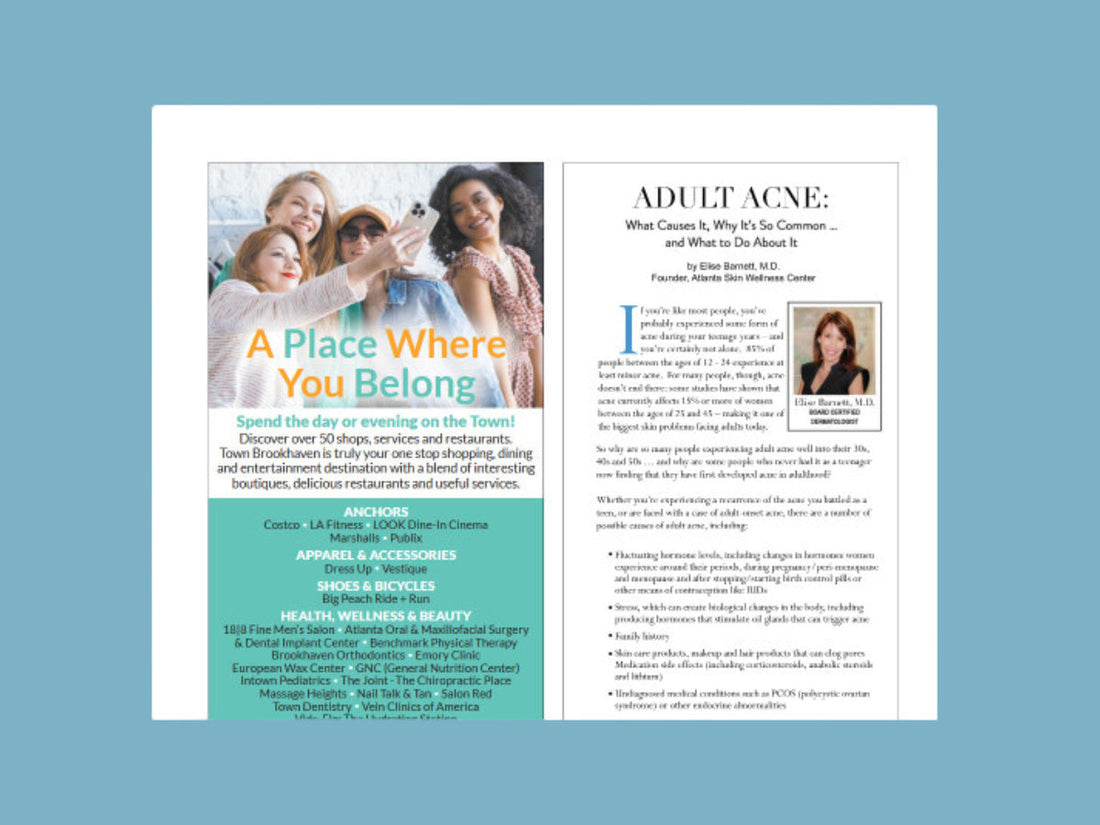
If you're like most people, you've probably experienced some form of acne during your teenage years -and you're certainly not alone. 85% of people between the ages of 12 - 24 experience at
least minor acne. For many people, though, acne doesn't end there: some studies have shown that acne currently affects 15% or more of women between the ages of 25 and 45-making it one of the biggest skin problems facing adults today.
So why are so many people experiencing adult a01e well into their 30s, 40s and 50s ... and why are some people who never had it as a teenager now finding that they have first developed acne in adulthood?
Whether you're experiencing a recurrence of the acne you battled as a teen, or are faced with a case of adult-onset acne, there are a number of possible causes of adult acne, including:
- Fluctuating hormone levels, including changes in hormones women experience around their periods, during pregnancy/peri-menopause and menopause and after stopping/starting birth control pills or other means of contraception like IUDs
- Stress, which can create biological changes in the body, including producing hormones that stimulate oil glands that can trigger acne
- Family history
- Skin care products, makeup and hair products that can clog pores Medication side effects (including corticosteroids, anabolic steroids and lithium)
- Undiagnosed medical conditions such as PCOS (polycystic ovarian syndrome) or other endocrine abnormalities
In treating adult acne, a lot depends on the specific cause of your particular acne flare-up. For some, a simple change to skin care/makeup products that are non-comedogenic, non-acnegenic and oil free can make a major difference, while those whose acne may be caused by other factors should see a board-certified dermatologist for evaluation and treatment (there are a number of highly effective oral and topical prescription medications that can effectively treat and control almost every case of adult acne.) Dermatologists can also use in-office light-based treatments and chemical peels to treat acne, as well as fade post-acne pigment changes. In addition, a board-certified dermatologist can also offer highly effective treatments for any scarring that you might have as a result of past acne - including procedures such as laser therapy, subcision and dermal fillers.
If adult acne is negatively affecting your self-esteem, it doesn't have to. There are so many effective treatments that can help your skin look and feel beautiful -- and partnering with a dermatologist can be the first step in saying goodbye to acne ... for good.
source: Simply Buckhead